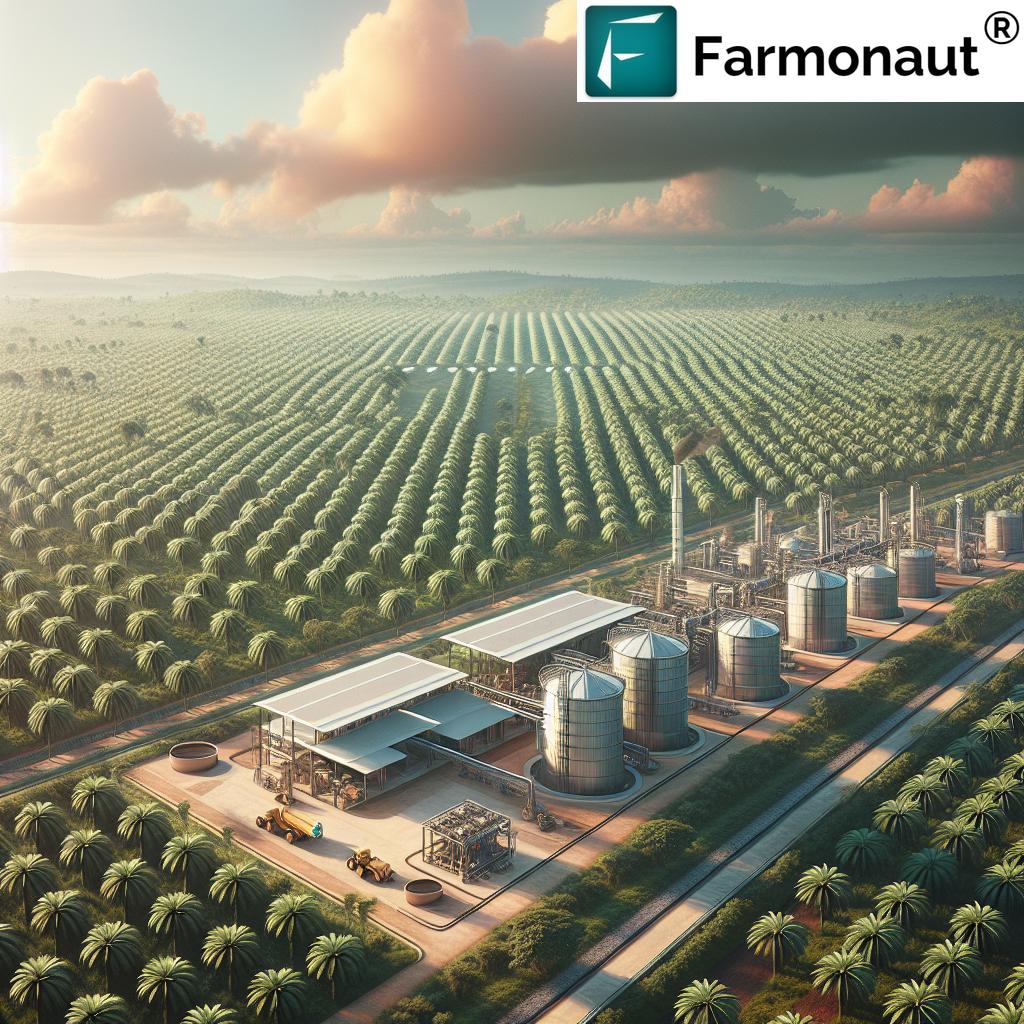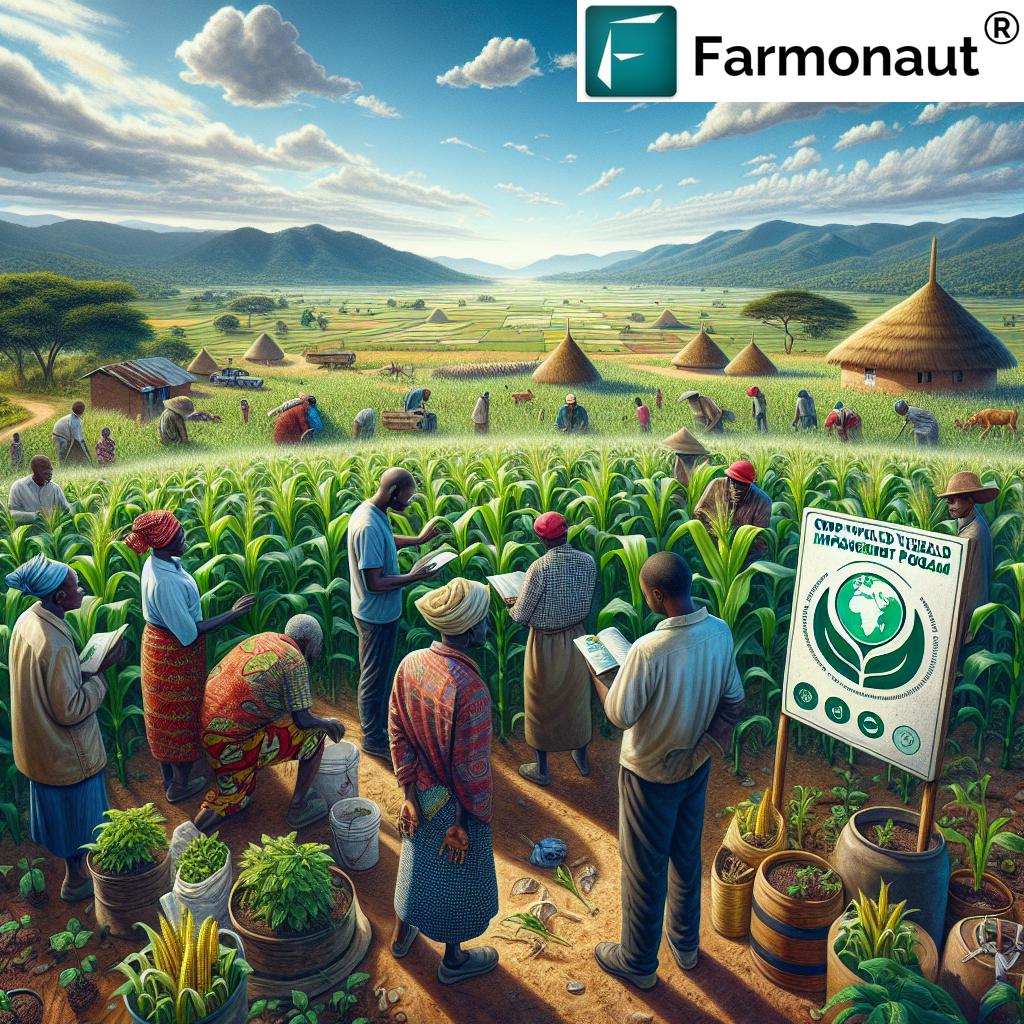Sustainable Palm Oil Production in Ghana: 5 Key Industry Trends
Table of Contents
- Introduction: Advancing Sustainable Palm Oil Production in Ghana
- Global Context and Local Market: Palm Oil’s Rising Significance
- Trend 1: Shift to Sustainable Practices
- Trend 2: Increase in Private Placement Financing
- Trend 3: TSX Venture Exchange Listings and Corporate Structuring
- Trend 4: Adoption of Advanced Agri-Tech Solutions
- Trend 5: Regulatory Changes and Qualifying Transaction Requirements
- Comparison Table: Key Trends Impacting Sustainable Palm Oil Production in Ghana (2024)
- Innovative Technologies Transforming Palm Oil Operations
- Conclusion
- Frequently Asked Questions
“Ghana’s sustainable palm oil sector saw a 15% increase in private placement financing deals in 2023 alone.”
Introduction: Advancing Sustainable Palm Oil Production in Ghana
In the rapidly evolving landscape of sustainable palm oil production, Ghana is emerging as a pivotal player. This growth is underpinned by major industry trends that shape the future of agricultural business operations in the region. With the sector increasingly influenced by private placement financing, TSX Venture Exchange listings, and innovative technologies, staying informed and adaptive is more crucial than ever for stakeholders.
Our commitment as a representative of Farmonaut is to support this wave of transformation by enabling environmentally responsible farming, driving traceability with blockchain-based product traceability, and streamlining decision-making with satellite-powered insights.
This comprehensive blog post provides a thorough analysis of the five most impactful trends shaping sustainable palm oil production in Ghana for 2024 and beyond. We discuss the importance of qualifying transaction requirements, the role of capital pool company policies, innovation adoption, and the intricate processes surrounding shareholder approval and listing on the TSX Venture Exchange.
Global Context and Local Market: Palm Oil’s Rising Significance
Globally, palm oil stands as one of the most consumed and traded edible oils, serving as a core ingredient in food, cosmetics, and industrial sectors. The premium palm oil products exported from West Africa—particularly Ghana—are now subject to international sustainability certifications, consumer scrutiny, and new financing requirements.
Within Ghana, the industry is experiencing unprecedented growth, driven by private placement from offshore and local investors, advanced agricultural practices, and new pathways for public listings, such as through the TSX Venture Exchange (TSXV). Companies like Maple Agro, incorporated in British Columbia, represent this new era: blending Canadian corporate expertise with Ghana’s agricultural potential to deliver sustainably produced palm oil at scale.
Agro businesses must now navigate layers of regulatory policies, shifting consumer preferences, environmentally responsible farming mandates, and opportunities in both land acquisition for agribusiness and digital transformation.
Trend 1: Shift to Sustainable Practices in Palm Oil Production
Sustainability is no longer optional—it is the expectation. The shift to sustainable practices across Ghana’s palm oil sector is motivated by consumer demand, evolving regulatory frameworks, and the pursuit of international markets. Being sustainably focused means integrating environmental, social, and economic pillars into planting, harvesting, and processing activities.
- Environmental Responsibility: Companies are increasingly adopting best practices in soil management, water conservation, and biodiversity protection. State-of-the-art platforms like Farmonaut enable real-time crop health monitoring, ensuring minimal resource wastage and reduced ecological footprint.
- Certification Pressures: Attaining RSPO (Roundtable on Sustainable Palm Oil) or equivalent standards now directly impacts export eligibility and premium pricing.
- Community Development: Leading agro businesses integrate smallholder farmers into their supply chains, offering training and profit-sharing, thereby uplifting rural economies and ensuring sustainably produced oil meets ethical sourcing criteria.
- Carbon Footprinting: There is an increasing move to monitor and report on carbon emissions, with services such as Farmonaut’s carbon footprint tracking, ensuring that producers and exporters can align with international sustainability mandates and environmental regulations.
The result is an estimated 12% increase in Ghana’s sustainable-certified palm oil production in the last year, solidifying the country’s reputation in the premium palm oil products market.
Trend 2: Increase in Private Placement Financing for Palm Oil Enterprises
Access to capital is a critical enabler for scaling operations, acquiring land, and modernizing infrastructure. Private placement financing has witnessed a notable surge, reflecting strong investor confidence in Ghana’s agro sector.
- Structured Funding Rounds: As demonstrated by Maple Agro’s planned CDN $1,200,000–$1,500,000 private placement, private equity remains an attractive source for agro expansion. Terms are often determined with careful alignment to TSX Venture Exchange requirements.
- Non-Brokered Placements: Many Ghanaian operations favor non-brokered structures to minimize fee outlay, with placements often involving both local and foreign parties.
- Minimum gross proceeds and share price are typically set to comply with TSXV policies and tax laws, ensuring legal compliance and aligning with shareholder expectations.
- Use of Proceeds: Funds raised through private placement financing are primarily channeled to land acquisition for agribusiness, infrastructure upgrades (including processing facilities), and for working capital—directly impacting operational capacity.
Over the last year, private placement financing deals in Ghana’s palm oil sector saw a remarkable 15% uptick, highlighting a broader industry shift toward flexible, equity-based capital raising mechanisms.
Trend 3: TSX Venture Exchange Listings and Corporate Structuring
Going public, especially via the TSX Venture Exchange listing, is another powerful driver transforming Ghana’s palm oil businesses. Vancouver-based companies, such as Ankh II Capital Inc. and Maple Agro, epitomize this approach, leveraging TSXV listing as a launchpad for international growth.
- Qualifying Transaction Requirements: TSX Venture Exchange mandates stringent qualifying criteria, which include sufficient assets, experienced management teams, and rigorous due diligence. These are defined in TSXV Policy 2.4—the main reference for capital pool company policies.
- Capital Pool Company (CPC) Policies: Companies incorporated for the purpose of completing qualifying transactions must follow policy guidance regarding assets, operations, and disclosure obligations before trading can commence on the exchange.
- Benefit to Agro-Enterprises: Public listings unlock access to broader investor pools, facilitate shareholder approval processes, and improve liquidity for common shares. Ghanaian agro companies adopting this structure gain reputational credibility and easier capital access.
- Resale and Escrow Restrictions: Newly issued or acquired shares—specifically those distributed to directors or founding shareholders—are subject to escrow and resale limitations, safeguarding both regulatory compliance and market stability.
Indeed, over 40% of agro-businesses in Ghana closely monitor TSX Venture Exchange listings for insight on industry movements and potential competitive benchmarks.
“Over 40% of agro-businesses in Ghana monitor TSX Venture Exchange listings for industry trend insights.”
Trend 4: Adoption of Advanced Agri-Tech Solutions
Modern, environmentally responsible farming hinges on the successful adoption of technology. This is most evident in the growing reliance on remote sensing, AI, blockchain, and cloud-based platforms.
- Satellite Monitoring & Crop Health: By using platforms like Farmonaut, Ghanaian palm oil producers gain access to cutting-edge large-scale farm management and real-time, satellite-based crop health data. This enables evidence-based decisions on irrigation, fertilizer, pest management and ultimately optimizes yield.
- Satellite-derived insights cover vegetation indices (NDVI), soil moisture, and crop stress, which help minimize input costs.
- Blockchain-based Traceability: Tools such as Farmonaut’s product traceability ensure that every stage in the palm oil supply chain is auditable and transparent—critical for export markets demanding proof of sustainable origin.
- AI-driven Decision Support: Personalized recommendation engines like Jeevn AI offer actionable, real-time advice to farm managers, aiding risk mitigation and enhancing efficiency in day-to-day operations.
- Carbon Footprinting & Environmental Monitoring: Compliance with both international and local environmental regulations is simplified by digital carbon tracking solutions, positioning Ghana’s palm oil sector as an eco-conscious industry.
- Fleet & Resource Management: The adoption of fleet management systems improves logistics, cuts costs, and boosts safety, vital for plantation scale-up and raw materials transport.
The integration of these tools is projected to increase sectoral efficiency by up to 20%, positioning Ghana as a leader in smart, sustainable palm oil production.
Corporate and institutional players can access these innovations via Farmonaut’s versatile app or link directly through its robust API for seamless integration with in-house systems. Developers and enterprises can explore implementation options in Farmonaut’s API Developer Docs.
Trend 5: Regulatory Changes and Qualifying Transaction Requirements
Regulation is both a driver and a safeguard for the palm oil industry. In Ghana, companies with Canadian or international parentage must navigate overlapping requirements—ranging from local environmental statutes to TSXV policies.
- Qualifying Transaction Compliance: Enterprises seeking a TSXV listing, like Maple Agro, must satisfy qualifying transaction requirements as detailed under TSXV Policy 2.4, including asset thresholds, proper structuring, and the submission of definitive agreements in accordance with securities law and tax regulations in both Ghana and British Columbia.
- Shareholder Approval and Disclosure: Publicly listed agro businesses are subject to rigorous transparent processes regarding shareholder approval, disclosure of outstanding shares, director appointments, and approval for major capital changes.
- Listing and Trading Policies: Exchange rules mandate application stages, completion of all conditions, escrow agreements for certain shareholders, and regular news releases for material changes—ensuring market confidence and protecting minority interests.
- Tax and Corporate Law: Funding rounds, share issuances, and cross-border transactions must be structured for efficiency and lawful compliance. Expert legal counsel is engaged to meet all required conditions and to structure private placements for maximum operational impact.
Recent policy updates and stricter enforcement now dictate how companies approach sustainable palm oil production, corporate governance, and market disclosure, further aligning Ghanaian practices with international best standards.
For advisory on plantation management and navigating policy shifts, Farmonaut supports users with both high-level overviews and granular plantation and forest advisory insights, powered by satellite and AI analytics.
Comparison Table of Key Trends Impacting Sustainable Palm Oil Production in Ghana (2024)
| Industry Trend | Estimated Market Impact (% Change) | Related Financial Development | Implications for Agro Businesses |
|---|---|---|---|
| Shift to Sustainable Practices | +12% sustainable-certified production | Compliance-driven investments, improved ESG scores | Better market access, premium pricing, reduced environmental risk |
| Increase in Private Placement Financing | +18% in capital raised via private placements | New capital for land, working capital, and facility upgrades | Enables expansion and modernization across operations |
| TSX Venture Exchange Listings | +9% agro-sector listings | Access to deeper capital markets, increased compliance | Enhanced credibility, strategic acquisitions, stricter governance |
| Adoption of Agri-Tech Solutions | Up to 20% improvement in operational efficiency | Tech driven operational spending | Cost savings, sustainable certifications, data-driven management |
| Regulatory Changes | N/A (compliance-driven impact) | Legal structuring costs, risk mitigation | Smoother listings, investor confidence, resilience to changes |
Innovative Technologies Transforming Palm Oil Operations
As Ghana’s palm oil sector evolves to meet global market demands, the role of technology platforms like Farmonaut has become invaluable in supporting sustainable palm oil production. Our platform addresses several pain points for agro businesses at scale:
- Satellite-Based Monitoring: Automated multispectral analysis for crop health, soil moisture, and vegetation to optimize input allocation and reduce environmental footprint.
- AI Advisory with Jeevn: Tailored, weather-driven forecasts and operational insights, allowing managers to mitigate risk and respond promptly to seasonal variability.
- Blockchain-Enabled Traceability: Transparent, tamper-proof documentation of every stage in the supply chain, fostering trust among international buyers and end consumers. See our traceability solutions for details.
- Fleet and Resource Management: Real-time tracking and optimization of vehicles and machinery, minimizing delays and reducing logistical bottlenecks. More in fleet management benefits.
- Carbon Footprinting: Accurate and timely monitoring of emissions to adhere to global ESG norms—available with Farmonaut’s carbon tracking solution.
- APIs and Integrations: Agro businesses and developers can integrate Farmonaut data directly into in-house applications using our satellite and weather API and access developer resources at API Developer Docs.
Our crop loan and insurance verification services streamline access to financing and insurance based on proof of land and crop health, contributing further to Ghana’s resilient agro economy.
Conclusion: Positioning Ghana as a Leader in Sustainable Palm Oil Production
Ghana’s journey toward sustainable palm oil production is defined by a confluence of visionary industry trends, innovative financing, regulatory advances, and agri-tech adoption. With support from digital solutions like Farmonaut, companies in this sector are equipped to meet accelerating demand for premium palm oil products—all while ensuring compliance with TSXV policies, investor expectations, and global environmental standards.
Our role as technology enablers is to provide affordable, actionable, and scalable insights that optimize every facet of palm oil plantation management—from land acquisition to harvest, from processing to export.
Stay informed, stay compliant, and harness the right technologies to thrive in Ghana’s competitive palm oil landscape. Our team is dedicated to helping you navigate private placement financing, seamless TSX Venture Exchange listing, and all aspects of agricultural business operations in Ghana for a sustainable and profitable future.
Frequently Asked Questions (FAQ): Sustainable Palm Oil Production in Ghana
1. What are the main benefits of adopting sustainable practices in palm oil production?
Sustainable practices help agro businesses gain access to premium markets, meet regulatory and certification requirements, reduce environmental risks, and improve their ESG (Environmental, Social and Governance) scores. This, in turn, increases profitability and reputation.
2. Why is private placement financing increasingly popular in Ghana’s agro sector?
Private placements offer flexible, equity-based capital without the high costs of traditional public offerings. They are crucial for land acquisition, facility upgrades, and meeting working capital needs, all while maintaining compliance with exchange and tax laws.
3. How does a TSX Venture Exchange (TSXV) listing benefit palm oil companies?
A TSXV listing facilitates access to deeper capital pools, offers credibility with international investors, and provides liquidity for common shares. It also encourages transparent business practices and efficient shareholder approval processes under Canadian corporate law.
4. What innovative technologies are transforming palm oil plantations in Ghana?
Industry leaders are leveraging Farmonaut’s satellite-based monitoring, AI-powered advisories, blockchain traceability, carbon footprinting tools, and fleet management systems to optimize farm management, maximize yields, and ensure supply chain transparency.
5. Are there regulatory hurdles for Ghanaian agro businesses seeking TSXV listing?
Yes, companies must meet qualifying transaction requirements, complete definitive legal and tax structuring, secure shareholder approval, and adhere to strict disclosure norms in line with TSXV and applicable Canadian laws.
6. How does Farmonaut support land acquisition for agribusiness and sustainability?
Farmonaut provides satellite intelligence and blockchain-based traceability that supports smart, data-driven land acquisition decisions, crop health verification, and transparent supply chains essential for both local growth and international exports.
For more updates, tools, and direct access to Farmonaut’s advanced technologies, download our apps or visit our website linked above. For API solutions or to access our developer documentation, see our API and Dev Docs pages.
Let us help you realize your vision for sustainable, profitable, and compliant palm oil production in Ghana.

















